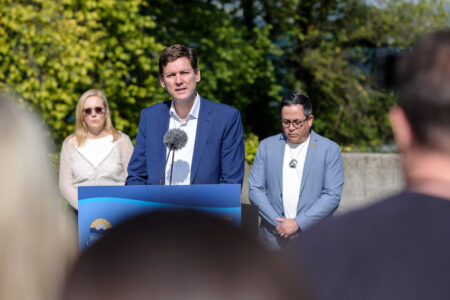City steps up to support Street Culture Collective address homelessness and poverty
A community group looking to deal with the problem of homelessness and poverty in the city received a boost from the city’s municipal government Monday night.
Nelson city council voted in a special council meeting Monday to support the Nelson Street Culture Collaborative application to the B.C. Healthy Communities Capacity Building Seed Stream Fund for the Street Culture Collaborative project.
The Nelson Street Culture Collaborative had requested that council provide support for its application for funding ($5,000) provided to small communities under the Plan H program. The deadline for the funding opportunity was Feb. 29.
There wasn’t much debate around the council table as the five councillors and Mayor Deb Kozak did not have to deliberate for long to decide to give the approval required.
Rona Park, executive director of the Nelson Community Services Centre and representing the Nelson Street Culture Collaborative, contacted Kozak with a request for the city’s support in applying for $5,000 under the Plan H small stream funding.
Under this program the city — the local government body — must be the applicant and there needed to be evidence of partnerships with the local health authority and community groups.
“One of the priority issues this funding opportunity provides for is a focus on positive mental health and well-being, which fits well with the Street Culture Collaborative project,” said Park in her email to city council.
The activities of the project would involve building on the recommendations the collaborative working group has proposed specifically around:
- putting a crisis response team in place (working with Nelson Police Department, Mental Health and others) with established protocols, and;
- offering the mental health First Aid training to as many people/stakeholders as possible.
“Finally, a consultant can help us explore the feasibility of putting some of the other recommendations the collaborative has put forward,” said Park.
A city staff report to council said there would be limited impact on city finance staff resources as the primary responsibility for administration of the grant will be with the Street Culture Collaborative.
Through B.C. Healthy Communities Plan H, the Healthy Communities Capacity Building Fund assists local government learning about the community context for health and well-being, partnership development between sectors, collaborative priority setting for health and well-being in local planning and policy, and innovative, multi-sectoral action to influence local health outcomes.
The city still has a panhandling bylaw in draft form, a piece of legislation that would empower bylaw officers to step in on the growing concern of panhandlers in the downtown.
The proposed regulatory bylaw regarding aggressive panhandling would not stop people from panhandling. Instead, it could establish guidelines for people who panhandle within the city of Nelson, while protecting the safety of everyone involved.
The bylaw states that no person who panhandles may “obstruct or interfere with a bylaw enforcement officer in the exercise of his duties,” nor panhandle in a manner to cause an obstruction.
- An obstruction was defined as:
- Approaching pedestrians more frequently;
- Becoming aggressive toward pedestrians, causing pedestrians to become un-comfortable walking downtown, even crossing the street to avoid certain areas;
- More signs being held by panhandlers which are extremely offensive;
- Blocking of the sidewalk passage, putting both the pedestrians and panhandlers into an unsafe and hazardous situations.
If the bylaw is eventually passed into legislation, fines could be handed out and court time would be incurred if the incidents escalated.

























